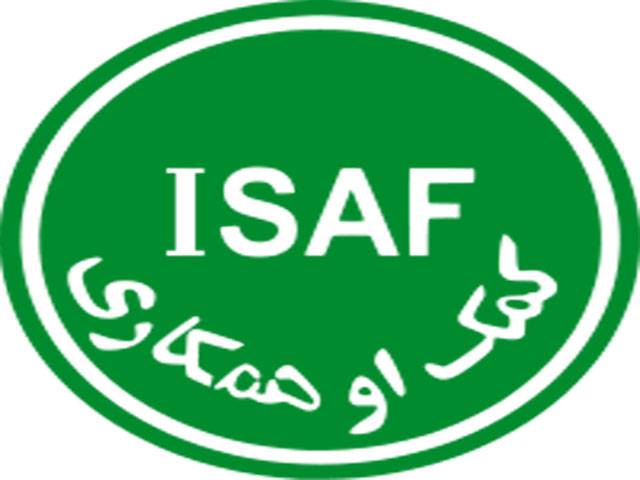RAWALPINDI –Pakistan and Western military alliance commanders Saturday failed to make headway on crucial contentious issues, particularly the resumption of Nato supplies.
The leadership of International Security Assistance Force (Isaf) headed by General John Allen and accompanied by its Afghan military counterparts arrived in Pakistan reportedly with a ‘grim’ message for the country – open Nato supplies or face Pentagon-sponsored ‘other’ set of options.
A brief statement from Pakistan’s military sounded to imply that the Isaf-led delegation’s arrival did not bear any relevance with the crucial contemporary developments vis-à-vis Pak-US relations and the delegation was visiting Pakistan in connection with Tripartite Commission meeting.
“Preliminary bilateral meetings were held with Pakistan Army delegation, led by Chief of Army Staff General Ashfaq Parvez Kayani. Talks focused on operations in border areas and coordination mechanisms to avoid untoward incidents,” it said.
But the subjects mentioned in the military statement were least discussed in the Kayani-Allen one-on-one meeting as well as the deliberations among other senior military officials.
They actually tried to iron out the fault lines on major issues but reportedly the effort ended in frustration with western-side repeating the US stance on not inviting Pakistan in Nato summit in Chicago, refusal to apologise over Salala incident, continuance of drone attacks and threats of toughened aid conditions for Pakistan.
Earlier on Wednesday, in response to this scribe’s query following a prior telephonic conversation, the Isaf Military Spokesperson Brigadier General Carsten Jacobson had declined to provide details of these meetings. He just wrote in a text message: “This is highly classified. No comments please.”
Sources in Nato’s mission in Afghanistan confirmed this newspaper’s prior information that General John Allen was accompanied by Isaf Air Operations Head in Afghanistan Major General Tod Wolters, Intelligence Head Isaf Brig Gen Robert Ashley and Isaf Deputy Commander Adrian Bradshaw.
Besides General Kayani, Rawalpindi Corps Commander Lt-Gen Khalid Nawaz Khan, Peshawar Corps Commander Lt-Gen Khalid Rabbani and DGMO Maj-Gen Ishfaq Nadeem represented Pakistan while Afghanistan was represented by National Directorate of Security (NDS) Director Rehmatullah Nabeel, Deputy Director Yasin Zia and Afghan National Army (ANA) Chief Sher Muhammad, it is learnt.
The Isaf-led delegation was purportedly ‘unflagging’ in conveying to its counterparts at GHQ that future of ‘extensive’ Pak-US strategic prospects hinged on Pakistan’s decision on Nato supplies. The ‘warning shot’ was said to have been categorically fired that Nato command was in favour of not inviting Pakistan to the upcoming Chicago moot unless its supplies were restored. Pakistan Army’s demand of an unconditional apology from the US over Salala incident and its insistence to stop drone strikes in the north-western tribal areas were too not ‘well reciprocated’.
The strategic relationship between the two allies has been on a soaring end since last year’s Nov 26 Salala attack. While Washington had earlier purportedly agreed, after extensive rounds of deliberations with Islamabad, to apologise over the killings of 24 Pakistani soldiers, the occurrence of certain developments in Afghanistan did not go the US way and saw the country having tendered an apology over the alleged highhandedness of its soldiers. This, in implied terms, contemplates that another apology from Washington has presently gone out of the cards. The US Congress has proposed drastic slash in aid to Pakistan linking the reversal of this proposal with the restoration of Nato supplies.
Pakistan’s military and government have lately struggled for finding a way out of this stalemate. While the military establishment got the anti-American hype risen so high that it cannot simply backtrack now and that too without receiving the major assurances it has long sought. The political divide and domestic opposition to supplies restoration have narrowed down the options for military and government.
Thursday, April 18, 2024
Generals fail to untie key knots at tripartite forum

1:55 PM | April 18, 2024
Stefanos Tsitsipas advances in Barcelona
4:19 PM | April 18, 2024
Met Office predicts more rains across country till April 29
2:51 PM | April 18, 2024
Punjab changes school timings for summer season
1:55 PM | April 18, 2024
Enemies of Pakistan are unable to digest investment in the country: Ataullah Tarar
1:29 PM | April 18, 2024
IHC restores Bushra Bibi's appeal for shifting to Adiala Jail from Bani Gala
1:24 PM | April 18, 2024
Hepatitis Challenge
April 18, 2024
IMF Predictions
April 18, 2024
Wheat War
April 18, 2024
Rail Revival
April 17, 2024
Addressing Climate Change
April 17, 2024
Justice denied
April 18, 2024
AI dilemmas unveiled
April 18, 2024
Tax tangle
April 18, 2024
Workforce inequality
April 17, 2024
New partnerships
April 17, 2024
ePaper - Nawaiwaqt
Advertisement
Nawaiwaqt Group | Copyright © 2024





